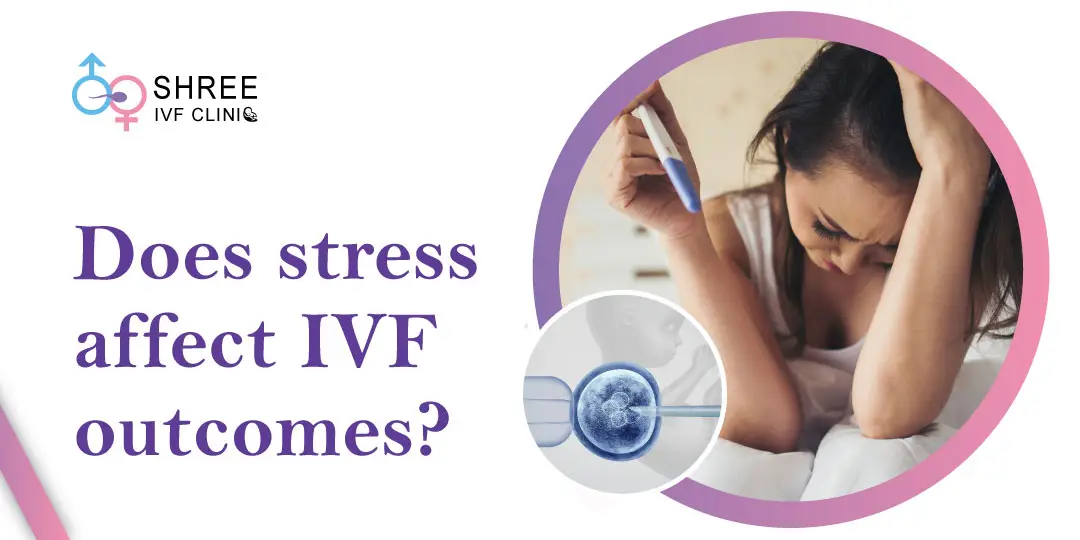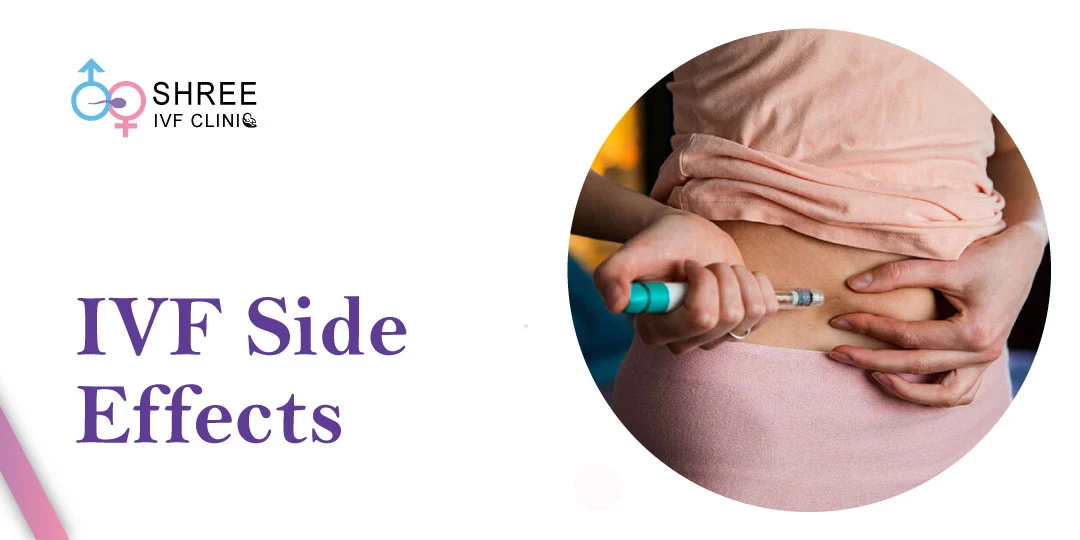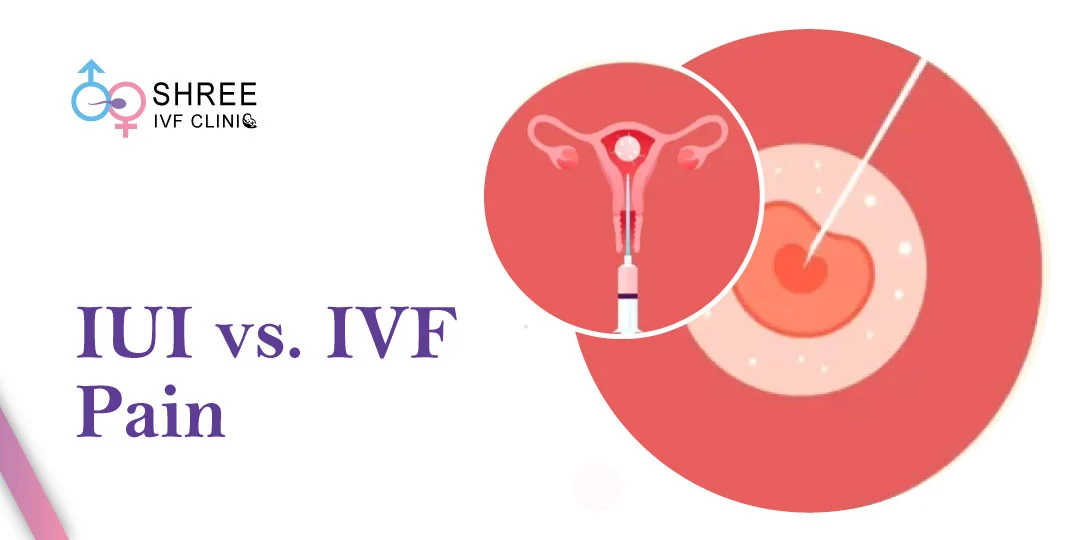Can IVF Fail Due to Stress?
UPDATED ON 31 JAN. 2024
In Vitro Fertilisation, commonly known as IVF, has revolutionised the field of reproductive medicine since its inception. It’s a complex series of procedures used to help with fertility or prevent genetic problems and assist with the conception of a child.
Despite the increasing sophistication of medical technologies, IVF doesn’t guarantee pregnancy, and success rates vary.
According to the Human Fertilisation and Embryology Authority (HFEA), the percentage of IVF treatments resulting in a live birth is about 29% for women under 35, around 23% for women aged 35-37, and approximately 15% for women aged 38-39.
Many factors can influence the success of IVF treatment, and stress is often mentioned as a potential contributing factor to unsuccessful outcomes. However, the exact relationship between stress and IVF failure remains a subject of ongoing research and discussion.

AUTHOR
Dr Jay Mehta
Scientific Director & IVF Specialist with 10+ years of experience
TREATMENT
CONDITION
Failed IVF
GET IN TOUCH ON
The Role of Stress in Fertility and IVF Failure
Stress, both physical and emotional, impacts various aspects of human health, including fertility. It’s believed that stress can interfere with the body’s hormonal balance, potentially disrupting ovulation and reducing sperm production, thus impacting fertility.
In the context of IVF, the treatment process itself can often be a significant source of stress due to its invasive nature, high costs, and the emotional strain linked to the uncertainty of the outcome.
Some research suggests that high-stress levels might negatively affect the implantation process, which is a critical step in successful IVF. However, it’s important to note that the evidence is not definitive, as some studies show no significant correlation and others even indicate a possible positive association between stress and IVF outcomes.
Moreover, stress can also indirectly affect fertility by leading individuals to engage in unhealthy behaviors, such as poor diet, lack of exercise, smoking, or excessive alcohol consumption, all of which can negatively impact fertility.
In summary, while stress may be a contributing factor to IVF failure, it’s only one of many potential factors, and the relationship is complex and not yet fully understood. Therefore, whilst managing stress can be a beneficial part of preparation for IVF, it should ideally be coupled with a holistic approach to health and wellbeing.
Review of Studies on the Correlation between Stress and IVF Failure
There have been several studies aimed at understanding the correlation between stress and IVF failure. A notable study published in ‘Fertility and Sterility’ in 2012 found no significant association between pre-treatment stress and the outcome of IVF.
On the contrary, a 2014 study in ‘Human Reproduction’ reported that women with higher levels of stress-induced hormones had a 2-fold increased risk of IVF failure. The ambiguity in these results underscores the complexity of the relationship between stress and IVF outcomes.
Furthermore, a comprehensive review in ‘Reproductive Biomedicine Online’ in 2017 assessed multiple studies and concluded that while chronic stress might negatively influence IVF outcomes, acute stress did not seem to have a significant impact.
However, due to the heterogeneity of studies and the variable definitions of stress, the report emphasized the need for more standardized and rigorous research in this domain.
In conclusion, the role of stress in IVF success or failure is far from conclusive, with studies showing varied results. It is apparent that more research is needed to definitively clarify this complex relationship.
Also Read: IVF Failed, What To Do?
How Stress Affects the Body and Potentially Impacts IVF Success
Stress, particularly when chronic, can have profound effects on the body. The release of stress hormones such as cortisol can impact various bodily functions, including immune responses, metabolism, and the endocrine system, which controls hormone balance.
In the context of IVF, this hormonal imbalance can potentially affect egg production and implantation, thereby influencing the success of the treatment.
Moreover, stress may also lead to behavioral changes such as poor diet and sleep disturbances, which in turn could negatively impact overall health and fertility. However, given the complex interplay between stress and body functions, it’s difficult to ascertain the exact magnitude of these effects on IVF outcomes.
As indicated in previous studies, the impact of stress on IVF success is still a subject of ongoing research, and it’s clear that a more comprehensive understanding requires further investigation with robust and standardized methodologies.
Regardless, managing stress effectively as part of a holistic approach to health and wellbeing seems to be beneficial for those undergoing IVF treatment.
Tips for Managing Stress During IVF Treatment
Managing stress during IVF treatment is crucial for the wellbeing of patients. Incorporating stress reduction practices into daily routines can be beneficial. Here are some tips to help manage and reduce stress during IVF treatment:
1. Meditation: This age-old practice has been shown to reduce stress and anxiety. Taking a few minutes each day to meditate can bring a sense of calm and peace. There are many forms of meditation, including mindfulness, transcendental, and loving-kindness, each with its unique benefits.

2. Therapy: Professional help in the form of counselling or therapy can be extremely beneficial. Therapists can provide coping strategies to manage stress, and listening to your concerns in a supportive, non-judgemental environment can be therapeutic in itself.
3. Self-Care Practices: Taking care of your body is as important as taking care of your mind. Regular exercise, a balanced diet, adequate sleep, and relaxation techniques such as yoga or deep-breathing exercises can help maintain a healthy body and mind. Remember, it’s okay to take time for yourself and do things you enjoy.
By incorporating these practices, prospective parents may find it easier to manage stress during the demanding IVF journey. It’s important to remember that every individual is different, so what works for one person may not work for another – it’s about finding what best suits you.
” Every individual and couple’s journey is unique, and
finding the right solutions tailored to their specific
circumstances can make all the difference “
In Conclusion,
Managing stress throughout the IVF journey isn’t merely a suggestion, it’s a necessity. The emotional toll of fertility treatments can be monumental and, if left unaddressed, may impact success rates. Incorporating techniques such as meditation, therapy, and self-care practices can significantly mitigate stress levels, fostering a more positive environment conducive to successful treatment.
Each individual’s experience with stress management will be uniquely their own, and it’s critical to find the strategies that work best for them. By prioritising mental wellbeing alongside physical health, potential parents can not only enhance their chances of successful IVF treatment but also ensure a healthier and more resilient mindset for the journey ahead.
AUTHOR
Dr Jay Mehta
Scientific Director & IVF Specialist with 10+ years of experience
TREATMENT
CONDITION
Failed IVF
CALL US 24/7 FOR ANY HELP
GET IN TOUCH ON
Share Article on
Recommended Reading
What Are the Side Effects of IVF?
Know the side effects of IVF, from mild pain to hormonal changes, and get expert advice as you start your fertility journey.
After IVF Transfer Pregnancy Symptoms
Learn about early pregnancy signs after embryo transfer, including cramping, spotting or light bleeding, fatigue, breast tenderness, and nausea.
Which is More Painful: IUI or IVF?
Why is IVF generally more painful than IUI? Discover the expert pain management techniques that can help make your experience more comfortable





